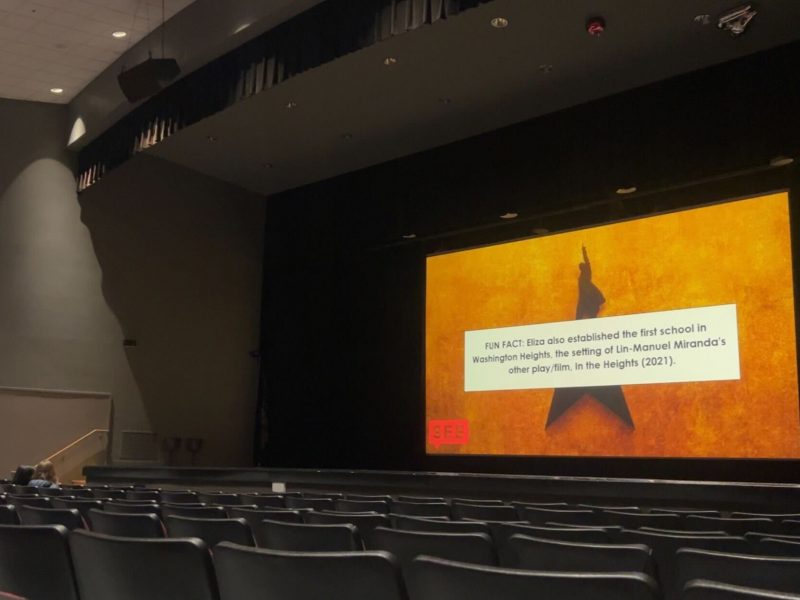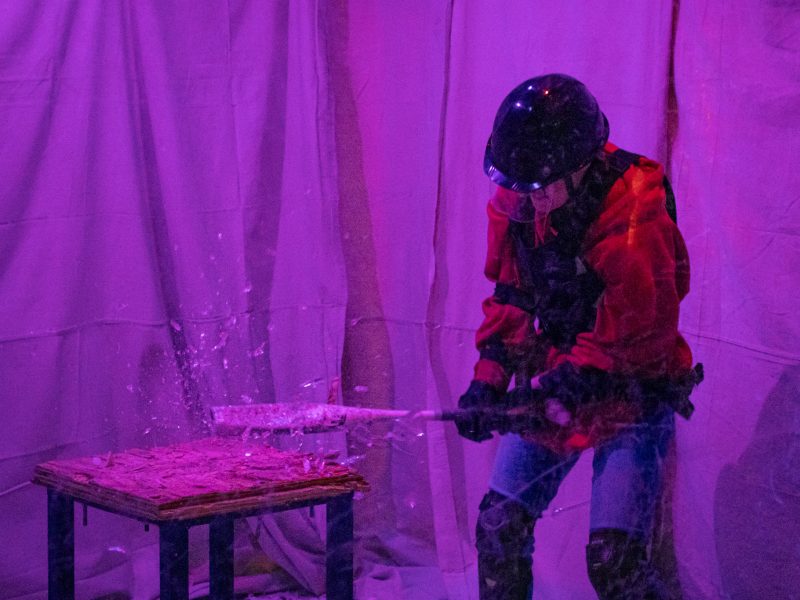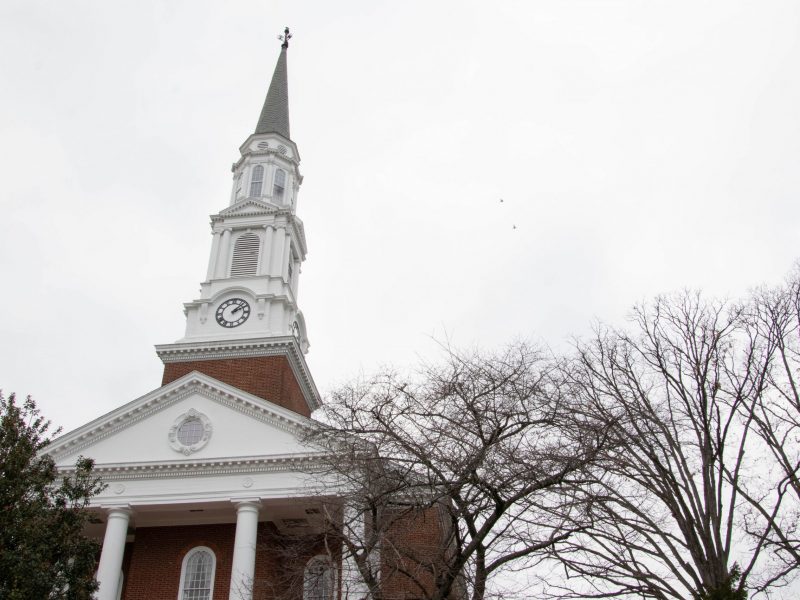When Jayson Blair entered a mostly filled Eaton Theater in Knight Hall on Wednesday morning, he waved up to the stage left uppermost row, to a small gaggle of journalism college professors who had turned out for the talk, a student presentation in an ethics class.
Afterward, he hugged his former professor Carl Stepp, one of the most prevalent College Park voices in the aftermath of a scandal that rocked the worlds of the news industry, the journalism school and Blair himself.
Having embraced his former student — who became infamous when an investigation revealed many of his articles in The New York Times contained plagiarism or fabrication — Stepp told a group of current students it was the first time he’d seen Blair since the all-star near-alum’s departure in 1999.
The affable professor said that he regards Blair as a person and that people who do bad things are not necessarily bad people. Blair was smart, he said, and talented. He just did something horrible.
It is here where the narrative separates from what Blair seemed to give the impression of during a Q&A session with senior journalism major Shannon Gallagher — a palpable difference that raised questions for myself, for fellow students and for professors representing the college Blair betrayed.
(As an ethical note, Gallagher, who led the presentation, is employed as a graphic designer for The Diamondback whom I directly supervise in my capacity as design editor.)
Stepp’s view is interesting not because he knew Jayson Blair before the fall, but more so because he knew Jayson Blair before the fame.
Because there are two Blairs.
There is the Blair who, as a student here, thirsted for the limelight of a shoddily reported story and as editor in chief of this newspaper repeatedly left early and enraged employees with new pay practices. Who insisted his middle initial be placed, proud as a peacock, amid his hefty byline.
The Blair who, in the years immediately following the scandal’s break, assigned blame (rightly or not) to the pressure of the Times newsroom, to his bipolar disorder or to his drug abuse.
The Blair who, when pressed by student questioners, denied any wrongdoing in that misreported story that falsely alleged a student died of cocaine overdose. Who said he didn’t remember a reported incident when he, after leaving the newsroom early, said he was unreachable during a deadline crunch because of a gas stove incident in his dorm that nearly killed him — even though all campus stoves were electric.
And there’s the second Blair, the Blair who said Wednesday his scandal at The Times was the culmination of a subconscious self-destructive streak that, had it gone unchecked, might have killed him.
Who seems to have internalized his ethical violation as such a streak, as something that became easier after he’d done it once, and something that drove him mad with nerves on the chance he would be caught each time he submitted work.
I had fashioned of him a false idol, mentally. From years hearing his name uttered with disdain, I have in discussions burned him as much in theoretical effigy as he did his master’s house, in a book the second Blair said today he never should have written.
He was a false idol when he was wrought by higher-ups at this school into an internship-getting machine who became tumultuous editor in chief of this newspaper in his unprecedented sophomore year, amid staff protest.
He was a false idol when his gut-wrenching (false) stories seeped ink on The New York Times‘ front page.
And he was a false idol in Knight Hall on Wednesday morning when he attempted to give counsel to an ethics class.
He said his scandal made him a better person and may have even bettered the industry. He said he has come back from the brink and accepts invitations like Gallagher’s because he wants to help future journalists avoid his mistakes.
He even said that, in his current practice as a life coach, some clients seek him out specifically because of the staggering fall from grace he purports to have come back from.
But is he really reformed?
When he talks about his past, it is as if he is talking about another person, effectively detaching himself, whether as a coping mechanism or a pathological side effect of shattered pride.
“You talk about it like something that’s happened to you,” journalism professor Sharon O’Malley said in the session, as opposed to something Blair set in motion.
“Are you sorry, Jayson?” O’Malley asked with palpable emotion.
He said he was. He said the scandal was painful for him, even if it did make him more humble.
I’d like to believe him, too. I’d like to believe he’s sorry my Diamondback experience will forever be tarnished by our most infamous alumnus. That he’s sorry my journalism degree will always come with the house-of-Blair footnote.
That he’s sorry my African-American colleagues still face increased pressure and scrutiny in part because of false interpretations about him.
To see Stepp hug him, to see Blair walk in and wave, one would like to think it’s all true, that he has reformed, and that he is here to help us, not to bask in a room full of people who know his name, middle “T” and all.
But he’s Jayson Blair, so he doesn’t have that luxury.
Like it or not, I can never trust a word he says.


